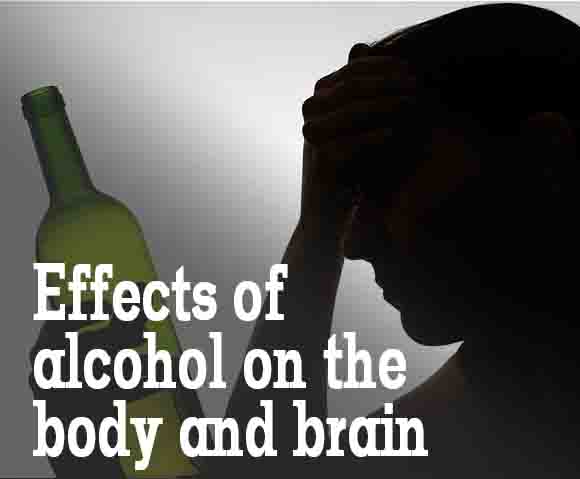While alcohol is considered socially acceptable in most parts of the world, it is detrimental to a person’s physical and mental health as well as to the overall physiological health of their brain. Heavy or long-term alcohol use can cause learning and memory problems, and eventually lead to the development or worsening of mental illness. At alcoholic spouse people can get out from alcohol addiction.
The brain is a delicate and complex organ that needs to maintain a balance of chemicals called neurotransmitters for a person to function properly. Alcohol poisoning can upset this delicate balance and upset the brain’s natural balance, and chronic long-term consumption forces one’s brain to adapt to compensate for the effects of alcohol.
Perhaps one of the most concerning long-term effects of alcohol consumption on the brain is the potential for the development of physiological dependence, a condition and condition in which a person experiences physical and psychological withdrawal symptoms and cravings if they stop drinking or significantly reduce the amount of alcohol they drink. alcohol in their bodies. The alcoholic spouse will help to come out from the drinking habits.
Table of Contents
How alcohol abuse affects the body
While you may not be aware of the damage drinking is doing to your internal organs, it’s important not to ignore the warning signs of alcoholism. Sometimes harmful effects are not recognized until much later, making many health complications difficult to reverse.
While every organ in your body can feel the effects of drinking, some organs are at greater risk for greater damage. The best way to prevent health problems now and in the future is to stop drinking with the help of a professional treatment program.
1. Brain
The effects of alcohol on the brain are felt quickly. Not only can drinking cause temporary complications such as loss of memory and coordination, but it can also cause long-term side effects that are sometimes irreversible.
Prolonged and excessive alcohol consumption can damage brain function and structure. Damage to various areas of the brain, particularly the cerebellum, limbic system, and cerebral cortex, can significantly disrupt the body’s communication pathways. For example, the cerebellum controls your body’s motor skills. When alcohol affects these brain areas, you are more likely to experience balance disorders, problems with memory, and problems with an emotional responses.
2. Heart
The heart is very vulnerable to the adverse effects of alcohol consumption. Over time, drinking can weaken your heart and affect the way oxygen and nutrients are carried to other vital organs in your body. High triglyceride levels contribute to the risk of dangerous health conditions such as heart disease and diabetes.
Some early cardiovascular effects, such as high blood pressure and irregular heart rhythms, can cause many problems later in life. Long-term consequences of excessive alcohol consumption can include cardiomyopathy, stroke and sudden cardiac death.
3. Pancreas
The pancreas is part of the digestive process and helps regulate blood sugar levels in your body. Years of drinking alcohol can take a toll on your pancreas and lead to long-lasting health complications. Unfortunately, the early stages of many pancreatic diseases often go undetected and therefore go untreated.
Finally, long-term alcohol abuse can cause the blood vessels around the pancreas to swell, leading to pancreatitis. This greatly increases the risk of developing pancreatic cancer, a type of cancer that spreads quickly and is very dangerous. While drugs and other treatments can help control the effects of pancreatitis, they can be very difficult to treat.
4. Memory Lapses
Alcohol can cause marked memory impairment after just a few drinks, and as the amount of alcohol increases, so does the rate of decline. Large amounts of alcohol, especially when consumed quickly and on an empty stomach, can cause fainting, or periods when a drunk person cannot remember important details of an event or even an entire event. People who have drank large amounts of alcohol over a long period of time are at risk for serious and permanent brain changes. The damage can be caused by the direct effects of alcohol on the brain or indirectly by general ill health or severe liver disease.
5. Issues with different body parts
Heavy drinkers are at risk for dangerous and potentially life-threatening liver problems. However, too much alcohol in a short period can overload the metabolism and lead to fatty liver. Fatty liver is a chronic condition where bad fat accumulates in the liver. Obesity is one of the biggest contributors to fatty liver.
Other serious liver complications associated with prolonged and excessive drinking include alcoholic hepatitis, fibrosis, and cirrhosis. While each of these conditions is treatable, it requires a proper medical diagnosis and an intensive treatment plan.

